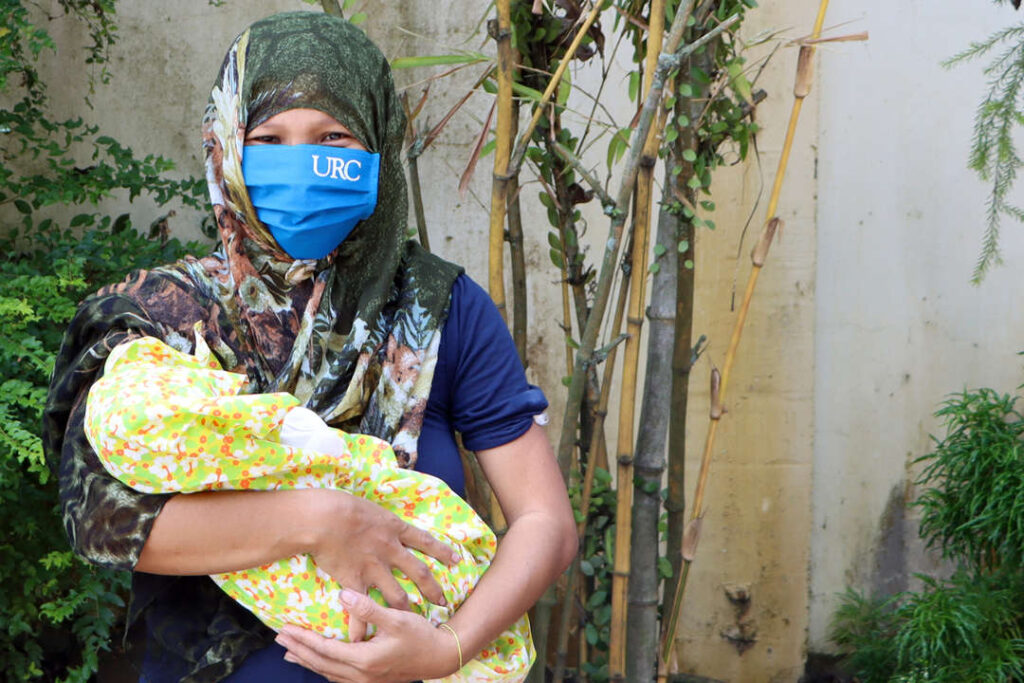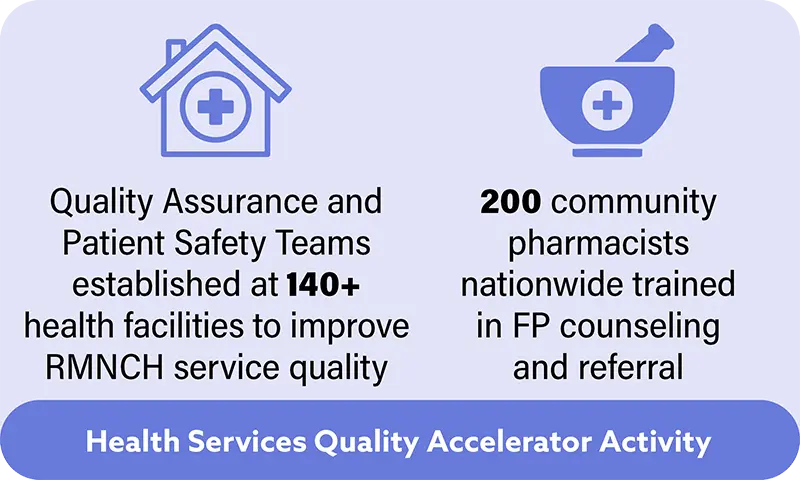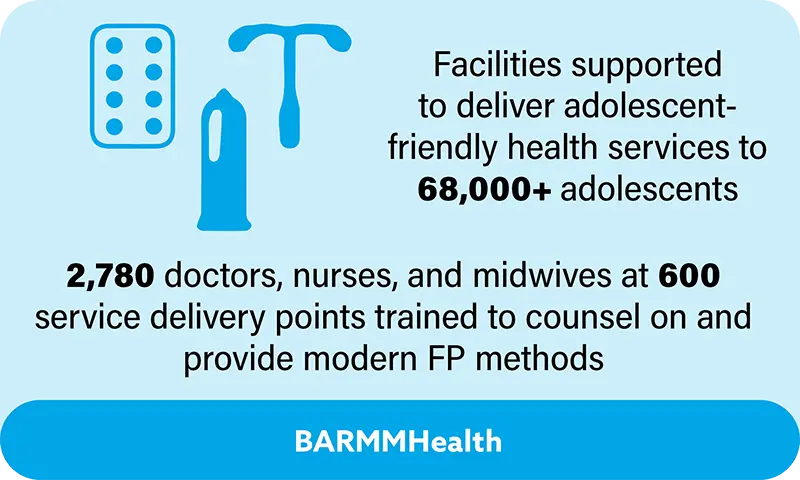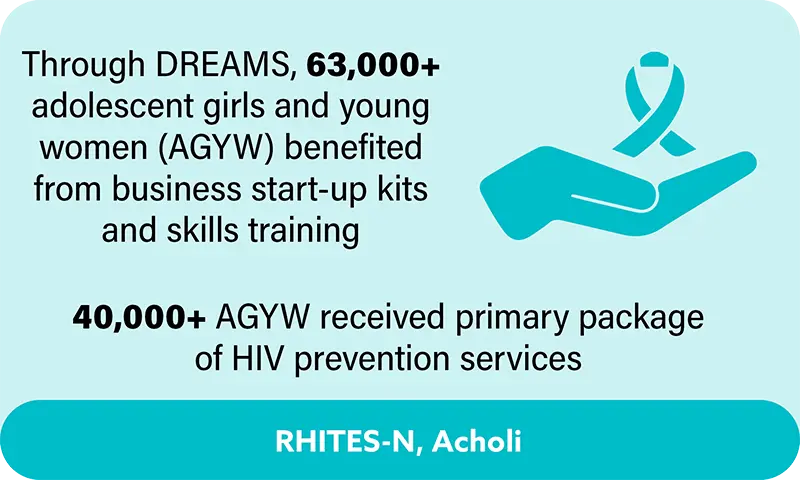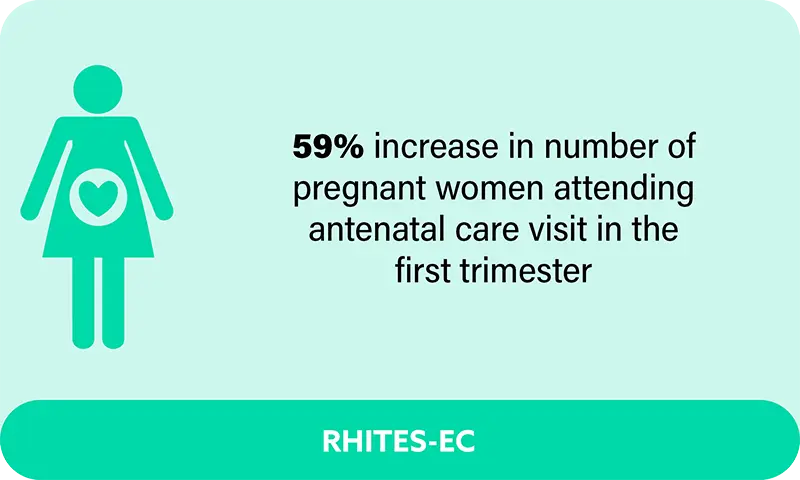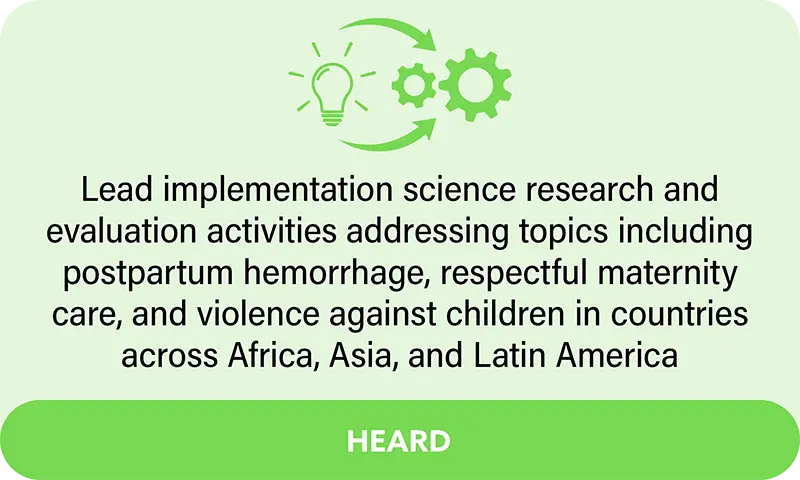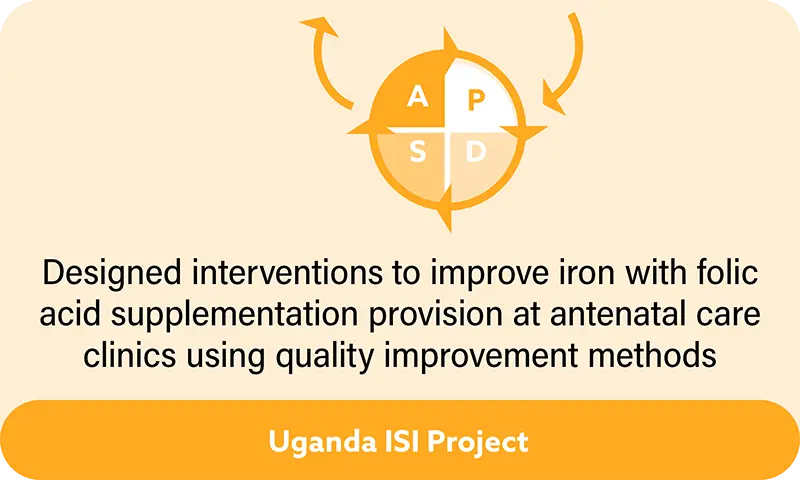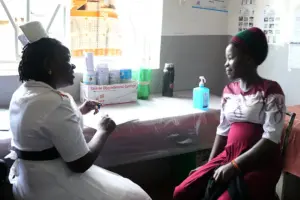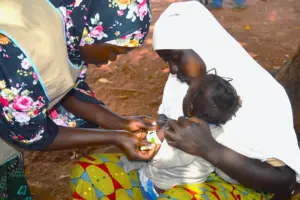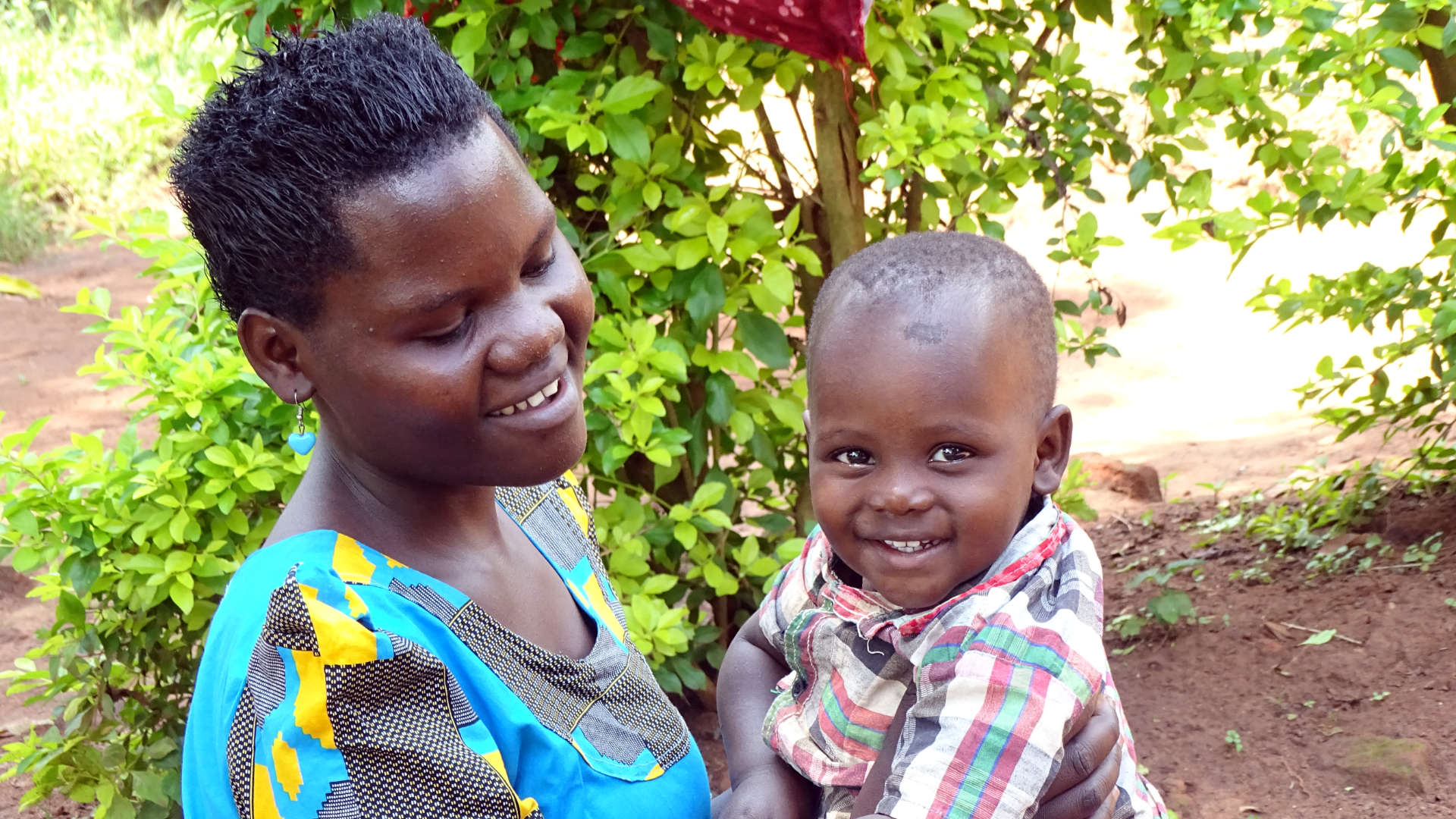
Maternal and Child Health
Hajira learned about exclusive breastfeeding, appropriate complementary feeding, and good nutrition practices at a Family Life School, an initiative supported by the USAID Regional Health Integration to Enhance Services in East Central Uganda (RHITES-EC) Project. Photo credit: RHITES-EC/URC
Maternal and Child Health
URC—as a leader, a partner, and a technical advisor—assists countries to ensure that every woman, baby, and child has access to health care. URC is committed to high-impact maternal, newborn, adolescent, and child health care.
We envision a world where healthy women deliver healthy babies, where both mother and child receive quality, respectful care from skilled and equipped health care workers.
URC’s proven quality health systems and health service delivery activities emphasize evidence-based solutions to improve health outcomes for mothers and their children. We work with policymakers, national health systems, facilities, community health workers, local leaders, and families to improve access to and quality of services. We assist governments to roll out international quality guidelines by supporting context-specific adaptations and strengthening government capacity to implement standards at all levels of health systems. And in conjunction with the World Health Organization’s Quality of Care Network, we unequivocally support the core values of quality, equity, and dignity in our work.
While maternal deaths worldwide declined by 44% between 1990 and 2015, approximately 800 women still die daily from preventable causes related to pregnancy and childbirth. Maternal health is closely linked to newborn survival, as vulnerabilities to illness can pass from mother to child. More than one-fourth of girls and women in Sub-Saharan Africa cannot access family planning (FP) services, leading to unplanned pregnancies and maternal mortality and morbidity.
To reduce preventable maternal and child death and help every mother and child thrive, URC and our partners support strengthening resilient health systems to improve integrated RMNCAH care across the lifecycle. URC builds institutional, community, and individual capacity to develop and implement evidence-based interventions to improve the access to and quality of antenatal care, childbirth and postpartum care, reproductive health services, and nutrition services.
URC Supports Women and Children
See how URC supports the health and welfare of women and children through its projects. Click on any slide to jump to its project page.
Adolescent Health
Globally, adolescents (age 10-19 years) make up 16% of the world’s population. But in some regions – notably sub-Saharan Africa – adolescents account for 23% of the population. Adolescents have unique health needs that require targeted interventions and supportive health services.
Both biological and social factors contribute to vulnerability in adolescence, particularly for girls. Early and forced marriage, gender-based violence, lack of education, and poverty – contribute to poor adolescent health outcomes including adolescent pregnancy, malnutrition, infectious diseases including HIV, and poor mental health. For 15- to 19-year-old girls globally, complications during pregnancy and childbirth are a leading cause of death.
URC understands that a youth-led and multi-sectoral, coordinated response is crucial to improving adolescent health. Our approaches include:
- Involving adolescents in the design, implementation, and monitoring of activities and services;
- Supporting civil society organizations and ministries of health to develop, modify, implement, and disseminate policies and guidelines that support best practices in adolescent health;
- Using different channels to reach adolescents, such as private sector providers, mobile outreach, social media and digital platforms, pharmacies and drug shops, and peer groups;
- Addressing provider bias and enrich providers understanding of adolescence;
- Integrating services to offer comprehensive quality care;
- Supporting the collection of data disaggregated by age and gender; and
- Addressing financial barriers to adolescent care-seeking.
An adolescent-responsive health system approach ensures that health services are accessible and relevant to adolescents while remaining integrated with service delivery at large. By facilitating partnerships with youth groups to design, implement, and monitor adolescent-friendly health services, adolescents can be empowered to acquire skills, achieve goals, and boost physical and emotional health and resiliency.
Projects
The Health Evaluation and Applied Research Development (HEARD) project leverages partnerships to lead implementation science research and evaluation activities. Work focuses on areas such as postpartum hemorrhage, respectful maternity care, violence against children, mental health and psychosocial support, and urban nutrition/WASH in countries across Sub-Saharan Africa, Asia, and Latin America.
The USAID Regional Health Integration to Enhance Services in East Central Uganda Activity (RHITES-EC) supported district health systems strengthening to improve quality, accessibility, and responsiveness of care across the household-to-community-to-facility continuum. Family Life Schools and community-led hygiene and sanitation initiatives have driven improvements in breastfeeding practices and infant and young child feeding, while supporting districts to surpass a national target of 90% coverage for clean and safe latrines. Adolescents who live with HIV can enroll in a one-week Warriors Camp organized by RHITES-EC and Makerere University – Johns Hopkins Research Collaboration’s Young Generation Alive Warriors’ Camps. The camp provided a platform for participants to share experiences with HIV care and treatment and express the challenges they face in adhering to treatment and achieving viral suppression.
The USAID Regional Health Integration to Enhance Services in Northern Uganda (RHITES-N, Acholi) Activity focused on strengthening the health system to increase access to and use of quality health services. Project work with the DREAMS (Determined, Resilient, Empowered, AIDSfree, Mentored and Safe) partnership resulted in the proportion of adolescent girls experiencing sexual and other forms of gender-based violence decreasing from 49% at baseline to 19.5% and an HIV incidence rate well below the national rate.
The USAID Bangsamoro Autonomous Region in Muslim Mindanao for Health (BARMMHealth) project bolstered the capacity of the MOH-BARMM in facilitating local health solutions in FP, adolescent and youth reproductive health, and maternal and child health, towards self-reliance and sustainability. Facilities supported the delivery of information on the responsible practice of sexuality, contraceptive options, and respect to over 68,000 adolescents. 2,780 doctors, nurses, and midwives at 600 service delivery points were provided with FP information, and services to address violence against women and children.
